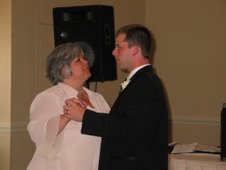After reading nearly 20 pages of William Blake, I finally came across a short poem that I felt I might actually be able to interpret. In A Poison Tree (pg 92-93) Blake talks about how oftentimes if we vent our anger to the person who caused us anger, the anger will dissipate. If we choose rather to hold our anger inside more times than not, rather than going away...our anger continues to grow. Blake uses poetic language to describe how wrath is grown using terms which we all associate with growing flowers, fruits, and vegetables. We all know that plants require water and sunlight to grow. When Blake says "watering it in fears, Night & morning with my tear" he speaks to how we allow our fears to increase the significance of the cause of our anger and how we remain upset, even to the point of tears. When he speaks of wrath being sunned "with smiles. And with soft deceitful wiles.", I interpret this to mean how we cover our anger with smiles to the offenders face, but plan our revenge in private.
But, alas as it usually happens with me and poetry...I got lost. I understand that the "apple bright" is the fruit of the angry person's wrath...and I get that when the person who was the target of the anger saw the bright shiny apple, he wanted it. At this point, the confusing part to me is why would the target of the anger and the bearer of the anger see the fruit as something to be desired? If I could get over this obstacle, I can understand how desiring the apple, the "foe" coveted it and took it....much like Adam and Eve partook of the forbidden fruit in the Garden of Eden...and, as with Adam and Eve, the foe perished.
Blake writes "In the morning glad I see." Is this supposed to infer that God was pleased that Adam and Eve ate the forbidden fruit? It has been my experience that the person who harbors the anger is the one who is harmed...much more so than the one against whom the anger was harbored.
Most of what I have read of Blake leaves me confused about his meaning. Fortunantly, many of the footnotes in the book along with the podcast helps in understanding. Actually, without both...I doubt I would feel that I had any real understanding of Blake's motivation. Much of his work seems to refer to other literature...which leads me to believe that his writings were not intended for the common folk of his time as many of them were uneducated.
So...I keep reading...and trying to understand...
Tuesday, May 29, 2007
Subscribe to:
Post Comments (Atom)

3 comments:
When I wrote my entries on Blake, my main points were based on “Paradise” and “Fall” and the “The Lamb” and “Infant Sorrow” and “Infant Joy” and “The Chimney Sweepers”. I guess to sum it up; I was doing a lot of comparison between the “good” and the “bad”. So when reading, “A Poison Tree”, I didn’t find the “good” to compare and contrast it with.
Blake’s “A Poison Tree” gave me a sense of appreciation. Why appreciation, because it brings up a good point concerning anger and how some humans deal with it. As mentioned earlier, when I was reading Blake my interpretations were “good” and “bad” just to keep it simple for me. However, “A Poison Tree” made me thinks above the “good” and “bad”. I agree with Blake that if we vent it goes away. In contrast, if we hold the anger in it will continue to grow. Now I must say that the ending, “In the morning glad I see. My foe outstretchd beneath the tree.” was a little much. I don’t agree that anger should be held in to the point where one is elated to see another dead or stretched out. I feel that we all are dealing with or have dealt with some anger issues that needs to be released. And either that anger has been released or it is still built up in you for whatever reason. Just for clarification, I would never agree with or think about death due to anger issues.
The main point or motivation that I will take from this poem, is release your anger. If we vent and release the anger it keeps life less complicated. Releasing anger instead of letting it build up will keep relationships intact. Whether the relationship is friends, co-workers, or family let’s just release the anger and tension before it builds up to a bigger issue.
I think that A Poison Tree was all about perception. Blake was challenging the reader to see that although two men, whether friend or foe, perceive this tree entirely differently, it is still the same tree in the end. Maybe that is too simple, but that is how I understood it. Blake to me is all about perception. Perhaps, it is because he had to make his own way and was less than well-off compared to other writers. I think his spirituality came from his ability to open his mind.
Wanda,
Very good job in this posting. I enjoyed the way you focused on a single poem, and wrestled with the meaning of "A Poison Tree" using specific passages from the text. I also like the way you draw on your own assumptions and experiences in your interpretation of this poem by this challenging poet. Nice work!
Glad to hear the podcasts are helping, by the way.
Post a Comment